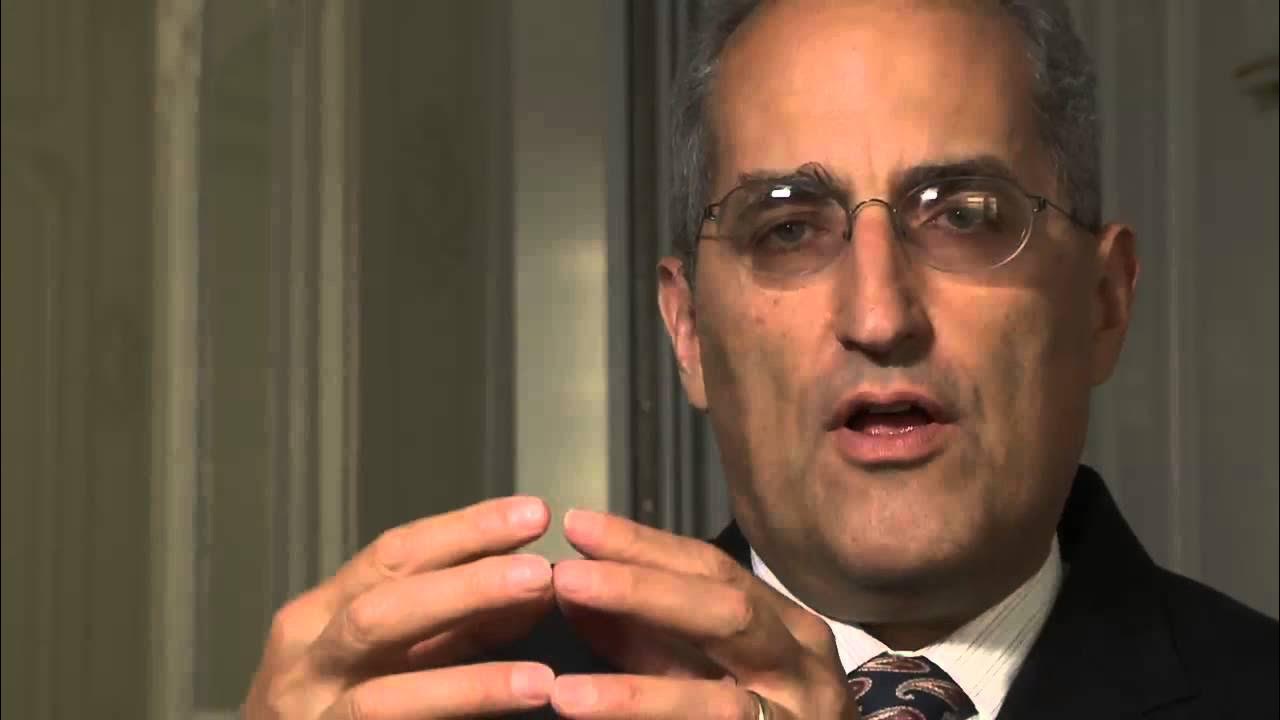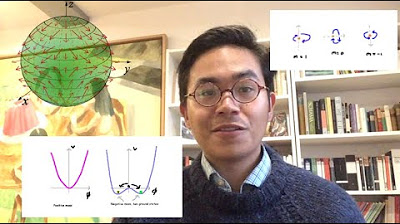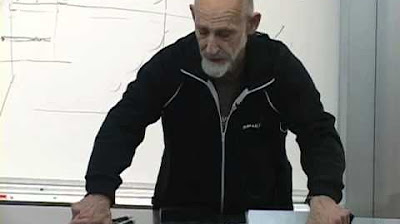Why I Want to Learn String Theory
TLDRIn this video, the host shares their motivation for learning string theory, inspired by Simon Clark's video on quantum field theory. With a background in theoretical nuclear and particle physics, the host feels ready to tackle the challenging prerequisites of general relativity and quantum field theory. They aim to form their own opinion on string theory, a subject that attempts to unify Einstein's theory of gravity with the standard model of particle physics, and plans to create videos based on David Tong's lecture notes to explore this complex topic.
Takeaways
- 🏠 The speaker and Kelly have moved into a new apartment and are returning to work and video creation.
- 📚 The speaker is seeking resources to learn string theory, a topic they've been interested in for a while.
- 🤔 They received mixed responses to their request, including questions about why they would want to learn such a complex subject.
- 🌟 Simon Clark's video on learning quantum field theory inspired the speaker to delve into string theory.
- 📝 String theory is described as an attempt to unify general relativity and quantum field theory, the two fundamental pillars of physics.
- 📚 Prerequisites for understanding string theory include a solid grasp of both general relativity and quantum field theory.
- 🎓 The speaker is currently pursuing a PhD in theoretical nuclear and particle physics, giving them a foundation in quantum field theory.
- 📈 They have also studied tensor calculus and general relativity, fulfilling the prerequisites for learning string theory.
- 🔬 The speaker's research interest in the energy-momentum tensor, which appears in both general relativity and quantum field theory, motivates their study of string theory.
- 🤔 There is a noted rarity for physicists to learn both general relativity and quantum field theory, which raises questions about the prevalence of strong opinions on string theory without full understanding.
- 📖 The speaker plans to use David Tong's lecture notes on string theory as a learning resource, with his permission.
- 📹 They are considering the format of the videos they will create, whether they will be edited or interactive live streams.
Q & A
What is the main topic of the video?
-The main topic of the video is the speaker's intention to learn string theory and their reasons for doing so.
What inspired the speaker to start learning string theory?
-The speaker was inspired by Simon Clark's video on learning quantum field theory, which motivated them to tackle a topic they had been putting off.
What is string theory?
-String theory is an attempt to unify the two major pillars of fundamental physics: Einstein's theory of gravity (general relativity) and the standard model, which is comprised of quantum field theories describing other fundamental interactions of nature.
What are the prerequisites for understanding string theory?
-The prerequisites for understanding string theory include a working knowledge of both general relativity and quantum field theory.
What is the speaker's educational background in relation to the prerequisites for string theory?
-The speaker is currently doing their PhD in theoretical nuclear and particle physics, has a reasonable understanding of quantum field theory, and has made a lecture series on tensor calculus and taken a graduate course in general relativity.
Why does the speaker believe it's uncommon for physicists to learn both general relativity and quantum field theory?
-The speaker suggests that it's difficult to justify spending time learning topics that one may never use in their specific field of research, making it uncommon for physicists to learn both general relativity and quantum field theory.
What is the speaker's motivation for wanting to form their own opinion on string theory?
-The speaker wants to form their own conclusions about string theory rather than just parroting someone else's opinion, and they believe that to do so, they need to understand what's 'under the hood' of the theory.
How does the speaker plan to learn string theory?
-The speaker plans to learn string theory by making videos on David Tong's lecture notes, which were highly recommended by others.
What is the significance of the energy-momentum tensor in the speaker's research?
-The energy-momentum tensor is significant in the speaker's research because it shows up in both general relativity and quantum field theory, and the speaker is interested in this object for one small aspect of their research.
What is the speaker's view on the criticism of string theory?
-The speaker acknowledges that while some criticism may be unfounded, there is validity in the perspective that one doesn't need to know all the details of a theory to assess its consistency with experimental results.
How does the speaker plan to approach making videos on string theory?
-The speaker is considering whether to make edited videos going through lecture notes or live streams that are more interactive and involve going through exercises, and they will decide based on what works better.
Outlines
📚 Embracing String Theory: A Personal Journey
The speaker, having recently moved into a new apartment, is eager to return to work and create videos. They were inspired by Simon Clark's video on quantum field theory to delve into string theory—a subject they've been postponing. String theory is described as an attempt to unify general relativity and the standard model of particle physics, which requires a solid understanding of both. The speaker reflects on their qualifications, having a PhD in theoretical nuclear and particle physics, and having studied both general relativity and quantum field theory. They also discuss the rarity of physicists learning both fields and the criticism string theory often faces, emphasizing the importance of forming their own opinion on the subject. They plan to use David Tong's lecture notes as a learning resource and are excited to start this new chapter in their educational journey.
👋 Anticipating Future Engagement
In the concluding paragraph, the speaker invites the audience to join them on their journey into string theory, expressing their enthusiasm for the upcoming exploration. They encourage viewers to share their thoughts in the comments section, indicating a desire for interaction and community involvement in this learning process.
Mindmap
Keywords
💡String Theory
💡General Relativity
💡Standard Model
💡Quantum Field Theory
💡Tensor Calculus
💡Einstein's Field Equations
💡PhD
💡Energy Momentum Tensor
💡Quantum Field Theory in Curved Spacetime
💡Phenomenological
💡David Tong
Highlights
The speaker is moving into a new apartment and returning to work on videos.
A recent post by the speaker asked for resource recommendations for learning string theory.
The speaker was inspired by Simon Clark's video on learning quantum field theory.
String theory is an attempt to unify general relativity and the standard model of particle physics.
Learning prerequisites for string theory include a working knowledge of general relativity and quantum field theory.
The speaker is currently doing a PhD in theoretical nuclear and particle physics.
The speaker has a reasonable understanding of quantum field theory from their research.
The speaker has also made a lecture series on tensor calculus and taken a course in general relativity.
Some experts in physics may not learn both general relativity and quantum field theory due to their specific focus areas.
The speaker's interest in the energy momentum tensor makes learning both theories relevant to their research.
The speaker purchased a book on quantum field theory in curved space-time for their research.
There is criticism and strong opinions about string theory, even among those who do not understand it deeply.
The speaker wants to form their own opinion about string theory rather than parroting others.
David Tong, known for his lecture notes, gave permission for the speaker to make videos on his string theory notes.
The speaker is considering making videos or live streams to go through string theory exercises.
The speaker first heard about string theory 10 years ago and is excited to start learning it now.
Transcripts
Browse More Related Video
5.0 / 5 (0 votes)
Thanks for rating:





